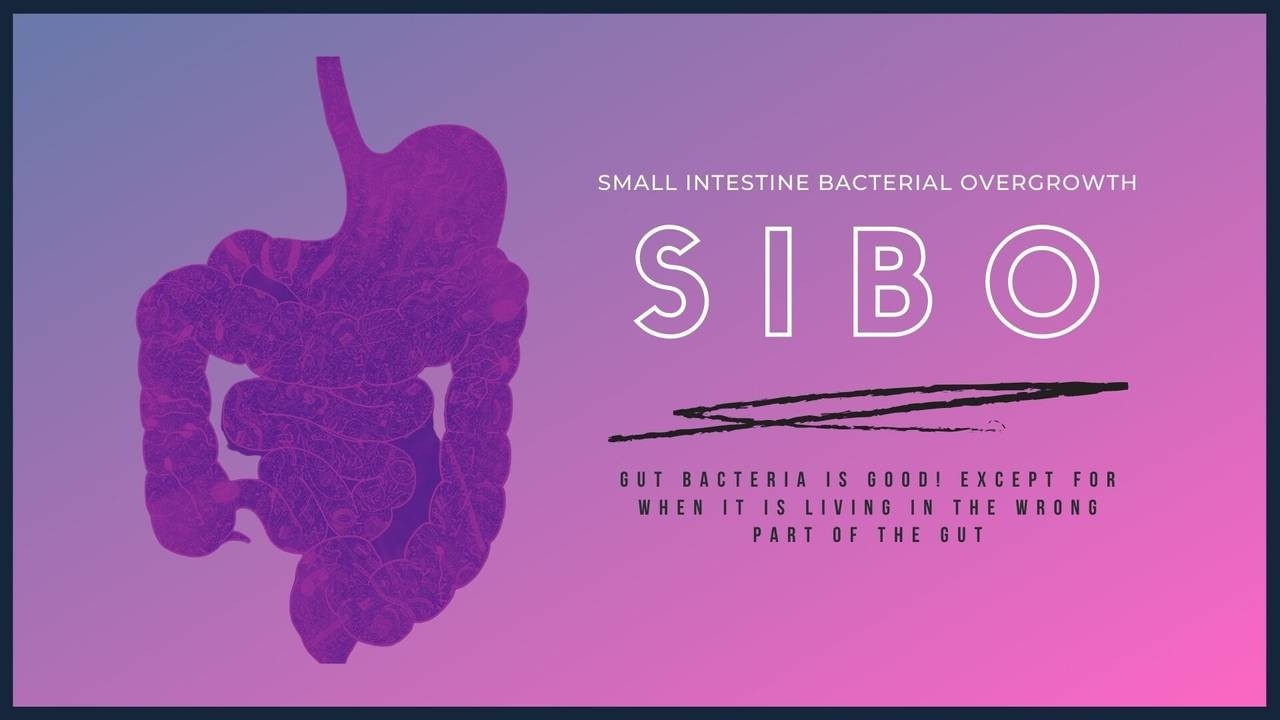
SIBO
Jun 08, 2020Excessive gas and bloating is something a lot of my clients mention as a symptom they frequently experience. Sometimes it can be due to the overgrowth of bacteria in the small intestine.
Gas and bloating can be attributed to a few different gut-related imbalances. One condition that is far too common is SIBO - Small Intestine Bacterial Overgrowth
Gas, Bloating and SIBO
We all have a large network of bacteria in our gut. To be a healthy and thriving individual, you should have more beneficial bacteria than pathogenic bacteria. The gut microbiome is important for metabolism, immunity, weight maintenance, and nutritional status, and also affects aging. They aid in digestion, reduce inflammation, manufacture vitamins, help with the absorption of minerals, manufacture essential fatty acids and short-chain fatty acids, break down toxins, and support heart health and hormone creation. (Whew! They have a lot of important duties!) But sometimes that bacteria migrate from their home in the large intestine, where they thrive, and re-locate to our small intestine. When bacteria in large quantities are found in the small intestine, they can interfere with digestion, nutrient absorption, and damage the intestinal lining. This can lead to adverse health issues beyond gas and bloating.
How does SIBO happen?
As I mentioned, bacteria are important for the digestion process. When the bacteria are digesting and fermenting carbohydrates and sugars in your small intestine, instead of your large intestine where most gas-producing bacteria live, it can produce excessive amounts of gas which leads to bloating, pain, constipation, diarrhea, or both.
The type of gas produced by the bacteria can be methane-producing or hydrogen-producing. Methane gas will slow peristalsis which results in constipation. Hydrogen gas will speed up peristalsis which results in diarrhea. You can even cycle between methane and hydrogen-producing gas. This explains why diarrhea and constipation can both be an issue for people with SIBO. SIBO can also trigger IBS (Irritatable Bowel Syndrome) and/or leaky gut.
SIBO Diet
I know what you're thinking... "If I avoid carbs will I get rid of SIBO, right?" In short, the answer is no. But let’s dive a little deeper. There are a group of carbohydrates that particularly cause more symptoms associated with SIBO. These carbohydrates are FODMAPs - fermentable oligo-, di-, mono-saccharides, and polyols. FODMAPs are not easy to digest, are poorly absorbed, attract water, and rapidly ferment. FODMAPs are further classified as lactose, fructose, fructans, galactans, and polyols.

SIBO is believed to be a dysfunction of the Migrating Motor Complex (MMC). The MMC is a smooth muscle running from the stomach through the whole intestinal tract. It contracts to "sweep" out/move along any undigested food or bacteria from the small intestine to the colon. This occurs every 90-120 minutes and is interrupted by eating.
Other possible contributing factors to SIBO:
-
Chronic Constipation
-
Medications
-
History of Food Poisoning
-
History of Surgeries
-
Abdominal
-
Bariatric
-
Hysterectomy
-
Gastrectomy
-
-
Esophageal, Gastric, or Colon Cancer
-
Gallbladder Removal
SIBO Support
Let’s go back to the question about avoiding carbohydrates and eliminating SIBO. Avoiding these high FODMAP foods will definitely reduce your symptoms, however, we need to focus on how to eliminate the bacteria that have camped out and repopulated the small intestine. These are some of the steps to take to support the elimination of SIBO.
-
Low FODMAP diet
-
Herbal supplements with antimicrobial properties
-
Fast 3-5 hours between meals and snacks to support the MMC. Fast for 12-14 hours overnight
-
Digestive Enzymes
-
Drink lemon water or apple cider vinegar before meals to increase hydrochloric acid
-
Magnesium to support GI motility
While SIBO can be challenging to navigate (it usually comes along with some other gut dysbiosis issues), clients feel immensely better when they focus on supporting and healing their gut through nutrition and supplements. Working with a Certified Nutrition Therapy Practitioner will help you be successful at eliminating SIBO!
The information available on this website is for general health information only and is not intended to be a substitute for professional medical advice, diagnosis or treatment. You should not rely exclusively on information provided on the Website for your health needs. You can read more about our disclaimer here.
Are you overwhelmed by all of the conflicting information regarding health, hormones, nutrition, and weight management?
Join me once a month for a FREE "Ask Me Anything" live Zoom sesh! I'll answer all the questions you've been spending so much time searching the internet for.









